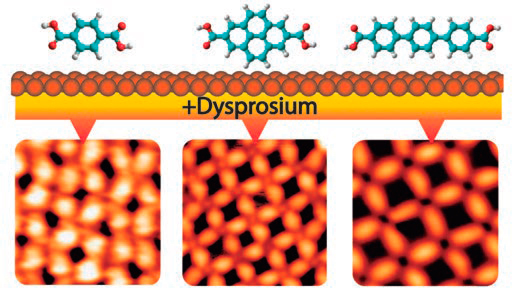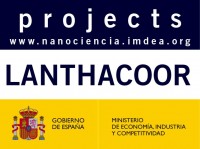LANTHACOOR Lanthanide coordination chemistry on surfaces
Dr. David Ecija and Dr. Paolo Perna
-
Funding :
MINECO FIS2015-67287-P
-
Duration: 2016 - 2018
-
36 months
Lanthanide metals are ubiquitous nowadays, becoming of vital relevance in different fields such as photonics, magnetism, sensing, catalysis, materials science and medicine. They find use in luminescent materials, optical amplifiers and waveguides, lasers, photovoltaics, rechargeable batteries, catalysts, alloys, magnets, bio-probes, and therapeutic agents. In addition, they bear potential for high-tech applications including high temperature superconductivity, molecular magnetic storage and magnetic refrigeration. Here, we propose to explore lateral lanthanide coordination chemistry on metals, with the goal of designing functional nanoarchitectures and studying physico-chemical properties related to the lanthanide family at the nanoscale. Specifically, we ambition to fabricate two-dimensional metal-organic lanthanide-directed nanodesigns. To this aim, we will take advantage of a powerful instrumental methodology combining scanning tunneling microscopy with spatial average techniques including XPS, UPS, XAS and XMCD.
STM topographs of the metallo-supramolecular Dy-directed reticular networks on Cu(111).
http://nanociencia.imdea.org/images/nanociencia/scientific_reports/Scientific-Report-2016.pdf#page=156




